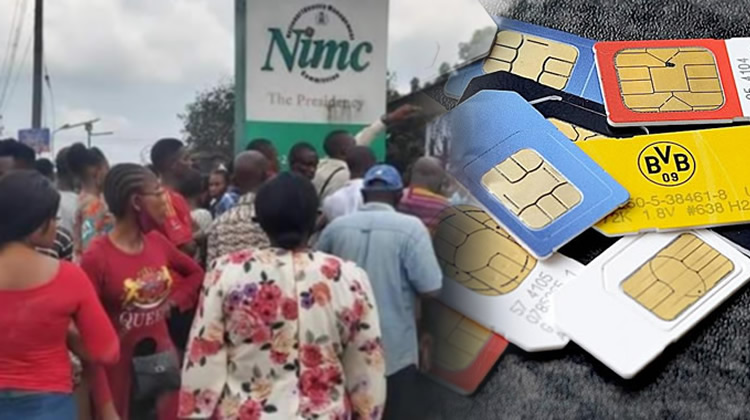Background and Policy Implementation
In a decisive move to enhance national security and ensure proper identification of mobile phone users, the Nigerian government mandated that all SIM cards be linked to the National Identification Number (NIN). The directive, issued by the Nigerian Communications Commission (NCC) in collaboration with the National Identity Management Commission (NIMC), aimed to curb criminal activities facilitated by unregistered SIM cards.
The policy, which began its implementation phase in December 2020, required all Nigerian residents to obtain a NIN and link it to their SIM cards. Despite several extensions of the deadline, many Nigerians still faced challenges in complying with the directive, leading to the recent blocking of non-compliant SIM cards.
Recent Developments and Government’s Stand
On July 27, 2024, the Nigerian government commenced the blocking of SIM cards not linked to NINs, affecting millions of users across the country. This action followed repeated warnings and public sensitization campaigns aimed at encouraging citizens to complete the linkage process.
Isa Ali Pantami, the Minister of Communications and Digital Economy, reiterated the government’s commitment to maintaining national security and urged affected individuals to link their SIM cards to their NINs to restore service. Pantami emphasized that the policy is crucial for tracking and mitigating criminal activities, including kidnapping, fraud, and terrorism, which have been rampant in recent years.
Impact on Mobile Network Operators and Users
Mobile network operators (MNOs) such as MTN Nigeria, Airtel Nigeria, Globacom, and 9mobile have been at the forefront of implementing the directive. The blocking of unlinked SIM cards has significantly impacted their customer base, leading to a potential decrease in revenue and increased customer service demands.
For users, the sudden disconnection has caused considerable inconvenience, affecting communication, business transactions, and access to digital services. Many Nigerians rely heavily on mobile phones for their daily activities, including banking, education, and healthcare. The disruption has sparked frustration and calls for further extensions to allow more time for compliance.
READ ALSO: INTERVIEW: How MonitNG is Empowering Nigerian Communities with Data and Transparency
Government Measures and Support for Affected Users

In response to the public outcry, the government has announced several measures to ease the process of obtaining and linking NINs. These include:
- Extended Operating Hours: NIMC offices and designated centers will now operate for extended hours, including weekends, to accommodate more people.
- Increased Enrollment Centers: Additional NIN enrollment centers have been established across the country to reduce congestion and expedite the process.
- Mobile Enrollment Units: Mobile units have been deployed to rural and underserved areas to ensure that all citizens have access to NIN registration services.
The government has also urged citizens to take advantage of online platforms for NIN verification and linking to avoid physical crowds and long queues at enrollment centers.
Challenges and Criticisms
Despite the government’s efforts, several challenges persist. The NIN enrollment process has been plagued by technical glitches, insufficient personnel, and inadequate infrastructure, leading to delays and frustration among the populace. Additionally, concerns have been raised about data privacy and the security of personal information collected during the registration process.
Critics argue that the policy’s implementation has been rushed and poorly managed, disproportionately affecting rural and economically disadvantaged communities with limited access to enrollment centers and technology. There are also concerns about the policy’s impact on businesses that rely heavily on mobile communication and the potential long-term economic repercussions.
Future Outlook
As Nigeria navigates this critical phase in its digital transformation journey, the success of the SIM-NIN linkage policy will depend on effective government communication, adequate infrastructure, and sustained public cooperation. The government remains optimistic that the initiative will enhance national security and promote a more organized and accountable telecommunications environment.
In the coming months, the focus will be on resolving the teething problems associated with the policy’s implementation and ensuring that all Nigerians can seamlessly link their SIM cards to their NINs. The NCC and NIMC are expected to continue their collaborative efforts to address the challenges and improve the overall efficiency of the process.
Conclusion
The blocking of SIM cards in Nigeria marks a significant step towards achieving a secure and well-regulated telecommunications sector. While the policy has faced numerous challenges and criticisms, it underscores the importance of robust identification systems in combating crime and enhancing national security. As the government works to streamline the process and address public concerns, the successful implementation of this policy will ultimately contribute to a safer and more connected Nigeria.



